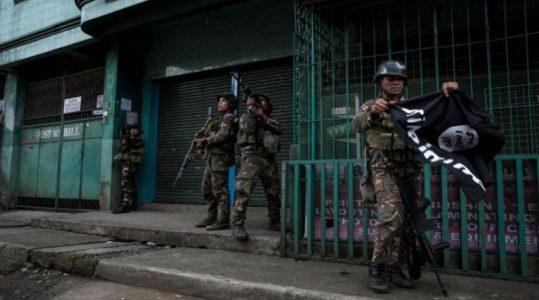
Misinformation and intelligence failures by the Philippine authorities as they underestimate the ISIS terrorists
Despite the presence of multiple militant groups in the Philippines who have made pledges of allegiance, or bayah, to Islamic State, the Philippine’ government and Armed Forces (AFP) have downplayed this threat. The statements they’ve made continuously ignore the reality of ISIS in the Philippines. This is partially due to the AFP deliberately downplaying the threat from ISIS by making false statements, something they’ve admitted to. At the same time, the Philippine government and the AFP have also managed to genuinely underestimate ISIS, likely in part due to the public downplaying of the threat as well as systematic intelligence failures.
Underestimating ISIS gave it the opportunity to stage major attacks that should have been preventable.
The Philippines has seen decades of conflict in the southern region of Mindanao, where the majority of the country’s Muslim minority live. Successive militant groups have fought the AFP in an attempt to form an independent state, and two major separatist militant groups have signed peace treaties with the government, agreeing to end fighting in return for various levels of autonomy.
However, splinter factions and other more recently founded organizations have led to a patchwork of extremist groups that continue to fight. Some of the most notable of these groups are the Bangsamoro Islamic Freedom Fighters, various Abu Sayyef Group battalions, and the Maute group.
In 2014 some Philippine groups began to give bayah to ISIS leader Abu Bakr al-Baghdadi, including senior Abu Sayyef commander Isnilon Hapilon, and BIFF. In the following years, more groups pledged allegiance to ISIS, including the Maute group.
ISIS later discussed the Philippines through various parts of their media apparatus. In 2014, the fifth edition of the group’s Dabiq magazine stated that groups in the Philippines had pledged allegiance to Baghdadi, and “announced the acceptance of the bay’āt from all of these groups and individuals.” Both the group’s spokesperson Abu Muhammad al-Adnani and Baghdadi himself made appeals to Filipinos to resist the “crusaders” and “rise against the apostate.”
In February and March 2016 ISIS’s official Al Furat Media released videos of Hapilon and commanders from several other groups pledging allegiance to Baghdadi. It should have been clear that these groups were now part of ISIS.
The Philippine government and AFP responded by stating that ISIS did not exist in the Philippines, with the then president Benigno Aquino saying, “It’s difficult to call them Islamic State groups.”
Philippine officials would for years treat Abu Sayyef, Maute, BIFF and other militant groups as if nothing had changed, seemingly failing to understand that they were now part of ISIS because they had pledged allegiance and it had been recognized.
In an effort to justify this position, officials made the distinction that, while the various militant groups in the southern Philippines may be ISIS-inspired, they were not ISIS-directed. They argued that while some individuals within Philippine groups, or even entire groups may be inspired by the extremist ideas of ISIS, they were not directed by ISIS in any way, implying there was no communication with ISIS and that groups did not receive orders from them.
This argument was flawed, as it ignored known communications between ISIS in the Philippines and its core in Iraq and Syria.
Videos and statements about groups in the Philippines were released by official ISIS outlets, suggesting a line of communication.
Filipinos had been known to travel to fight for ISIS in Iraq and Syria, often facilitated by communication with ISIS members. Communication with ISIS by militant groups in the Philippines is believed to have occurred as early as 2014, while certain militants, often Malaysians, enabled lines of communication between Philippine groups and ISIS in Iraq and Syria. Connections would deepen over time, with ISIS encouraging fighters to travel to the Philippines, giving direct orders to Filipino commanders, and even sending funds to support the activities of groups that had pledged allegiance to ISIS.
Source: Defence Post





